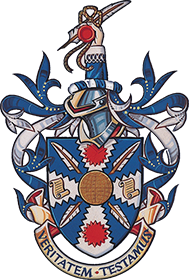When dealing with legal matters abroad, ensuring your documents are correctly certified and authenticated is essential. As a Notary Public, I specialise in verifying, certifying, and legalising documents for individuals and businesses, ensuring they meet international legal standards. Whether you are buying property overseas, handling business affairs, or preparing important legal paperwork, I provide expert guidance to make the process seamless.
Key Notary Services
My role as a Notary Public covers a wide range of services, including:
✔ Powers of Attorney – Many countries, including Spain and Poland, require a notarised power of attorney to allow someone to act on your behalf in legal or financial matters.
✔ Buying or selling property abroad – Real estate transactions in countries such as Spain and France often require notarised documents to be valid.
✔ Getting married abroad – Certain destinations require legal documents, such as a statutory declaration of single status, to be notarised before marriage.
✔ Witnessing signatures – Ensuring documents are properly signed and legally verified for use overseas.
✔ Certifying copies of documents – Including passports, academic certificates, and contracts for use in foreign jurisdictions.
✔ Notarising business & corporate documents – Assisting companies with international trade, contracts, and company formations that require notarisation.
✔ Affidavits & statutory declarations – Certifying written statements for legal purposes in other countries.
✔ Apostille & legalisation services – Handling the legalisation process through the Foreign, Commonwealth & Development Office (FCDO) and foreign embassies to ensure documents are officially recognised abroad.
Ensuring a Smooth Process
Navigating international legal requirements can be complex, but with the right expertise, it becomes a straightforward process. My experience as a Notary Public allows me to provide an efficient and professional service, ensuring all documents are properly authenticated and meet the necessary legal requirements. Whether for personal matters or business transactions, notarisation plays a crucial role in ensuring that documents are legally recognised in other jurisdictions.
Get in Touch
For assistance with notarisation, legalisation, and document certification, please feel free to get in touch. 07763902006 or email jonathan@jonathandurkin.co.uk









